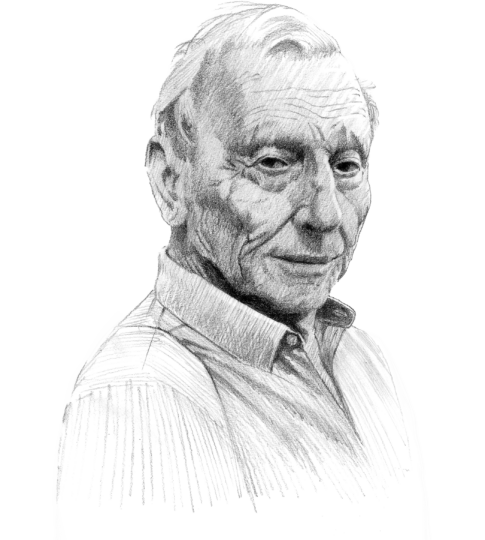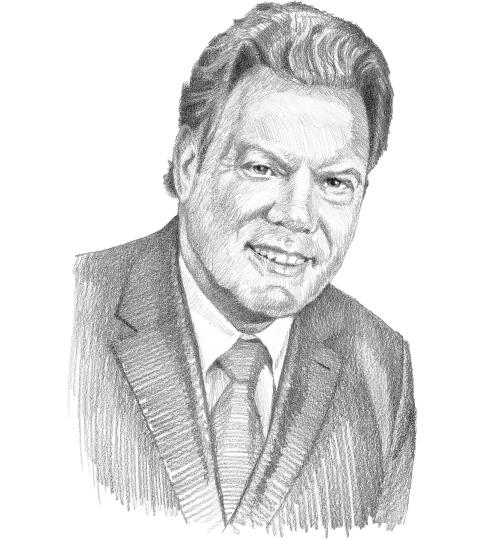A new wave of unrest in North Africa
Street demonstrations have forced Algeria’s president to resign and Sudan’s to declare a year-long state of emergency. In both countries, these popular revolts are challenging entrenched regimes that successfully weathered the Arab Spring in 2011.
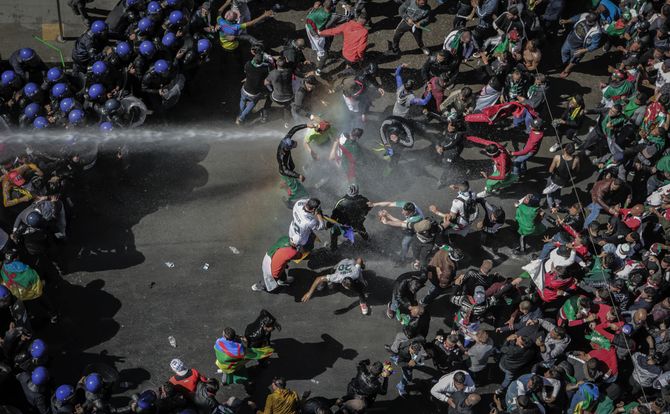
In a nutshell
- A new wave of popular unrest is targeting regimes that rode out the 2011 Arab Spring
- In Sudan, anger at rising prices has turned political and could spread in the Sahel
- In Algeria, hopes for a peaceful transition hinge on how the army handles discontent
In Sudan, five months of mass demonstrations have forced the government to call a state of emergency. In Algeria, five weeks of protests forced President Abdelaziz Bouteflika to announce he will step down after 20 years in power. Even in the Gaza Strip, popular unrest is making itself felt despite Hamas’s repressive regime.
This revival of popular unrest comes eight years after the Arab Spring of 2011, which fizzled into military regimes in countries like Egypt or morphed into endless civil wars in Syria, Libya and Yemen. There is no democratic tradition for protesters to draw upon in Sudan or Algeria; in both countries, the army is the main political force. Can this unexpected coda to the revolutions that opened an unhappy decade lead to better results?
Suppressed anger
Frustrated college graduates with no hope of employment have taken to the streets, together with civil society organizations and trade unions. Poverty, corruption, human rights abuses and severe curbs on freedom of speech and assembly, together with omnipresent military rule, are the soil from which this new awakening has sprung.
In all three places, the protests are directed against entrenched regimes that survived the Arab Spring through targeted suppression – and in the case of Sudan and Algeria, had been successfully doing so for decades. Though the catalyst varied by country, there was a single underlying cause: the failure of longtime rulers to build democratic institutions or provide sustained economic growth, despite plentiful natural resources and the easy availability of international aid and know-how.
The situation is somewhat different in the Gaza Strip, where Hamas is using its fight against Israel as a pretext to ignore the enclave’s economic crisis, preferring instead to weaponize the misery of its people against Israel. Yet abject poverty and growing anger have led Gazans to overcome their fear and confront their rulers. It is not yet clear how far their protests will go.
Sudanese outbreak
In Sudan, a sudden rise in the price of staples, especially oil and bread (whose price tripled from two cents to six cents a loaf) ignited the protests. The country had been seething ever since the adoption of an austerity budget for 2018. But when students in the city of Atbara on the Blue Nile took to the streets on December 19, 2018, the protest wave spread in a matter of days to the whole country.
In the capital, Khartoum, people began calling for the ouster of President Omar al-Bashir, who has ruled the country for 30 years. Demonstrators tried to break into government buildings and burned tires. The security forces responded violently, with tear gas, truncheons and live ammunition. The official tally was 12 dead, but there were certainly many more.
Omar al-Bashir took over a country embroiled in a civil war that claimed the lives of about 2.5 million people.
Omar al-Bashir seized power through a bloodless army coup in 1989. He set up a military regime, dissolving parliament, political parties and trade unions, banning all political activity, and imposing Sharia law. In 1993, he proclaimed himself president and has since been “reelected” four times. His National Congress Party has already indicated he will be a candidate again in 2020.
Mr. al-Bashir took over a country embroiled in a civil war that ultimately claimed the lives of about 2.5 million people. Peace was restored in 2005 by granting independence to South Sudan, which has a mixed population of Christians and polytheists. By that time, however, a second struggle had broken out in Darfur, in western Sudan. The Sudanese army and its allies, the Janjaweed Arab militias, conducted an ethnic cleansing campaign against indigenous African tribes, massacring them to seize their lands. By 2010, half a million had been killed or died of hunger. The international criminal court issued two arrest warrants against President al-Bashir for war crimes and genocide.
Financial crisis
The Sudanese economy, already poor when he took over, worsened with the partition of South Sudan, which had held 75 percent of the country’s oil reserves. Oil production and export had been the main source of income of the Khartoum regime, which had not attempted economic reforms or tried to attract foreign investments to develop its manufacturing base and diversify budget revenue.
To replace lost oil income, Sudan leased massive tracts of agricultural land to Islamic countries. Blessed with ample water from rainfall and the Nile River, the country has put only about one-fifth of its 85 million hectares of prime agricultural land under cultivation. In recent years, it leased 780,000 hectares of farmland to Turkey, 420,000 to Saudi Arabia, and hundreds of thousands more to Egypt, Jordan, Kuwait, Lebanon, Qatar and the United Arab Emirates. These countries have invested hundreds of millions of dollars in crops and agribusiness operations, employing local labor to provide cheap produce for their home markets.
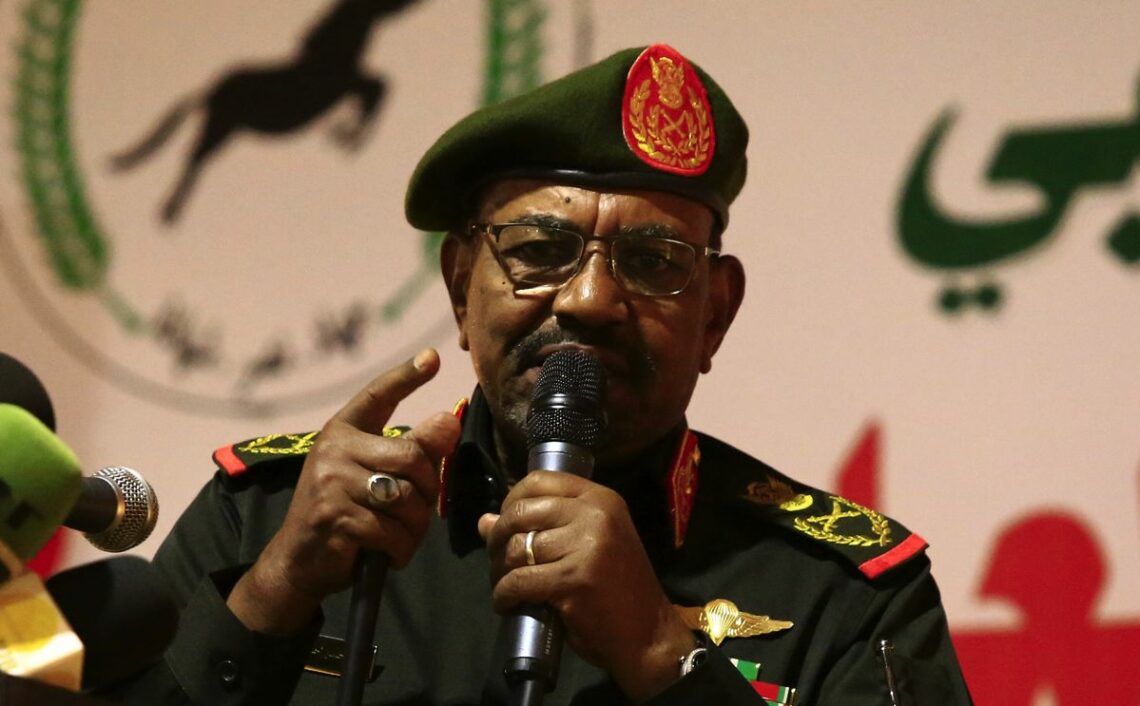
The influx of capital eased Sudan’s financial crisis for a while but did not contribute materially toward developing domestic agriculture and industry. To the contrary, whole communities – not just peasant farmers but also nomadic cattle herders, who make up most of the population in some areas – have been expelled from their ancestral lands so they can be leased to foreigners. Their traditional ways of life have been destroyed, often with outbursts of violence. Ultimately, this displaced population became a burden on the economy.
By 2017, this dire humanitarian situation prompted the United States to lift most of the sanctions it had imposed in the 1990s because of Khartoum’s links with radical Islamic organizations. The hoped-for inflow of direct foreign investment did not materialize, however. To obtain outside financing, President al-Bashir was forced in 2018 to bow to the demands of the International Monetary Fund and institute fiscal reforms – especially reducing food price subsidies.
Turning political
From the start, the austerity measures met with popular resistance. A first wave of unrest in early 2018 was put down with 40 dead. The December outbreak was a continuation of the same protests, fueled by 70 percent annual inflation with no political or economic progress in sight.
As the protests proceed, they have turned more political in character, with insistent demands that the president step down. Mr. al-Bashir responded in February by declaring a state of emergency, replacing the prime minister, and instituting a purge of local officials – who were replaced with army officers. As the president tightened his grip on the country, he also promised measures to provide economic relief and called for a “national dialogue.”
The EU and the U.S. are preoccupied with the potential for instability to spill over to other countries.
None of this pacified the protesters, who kept on demanding his resignation. But with the opposition hopelessly splintered and the public completely disillusioned with existing parties, the protest movement is by necessity improvised and spontaneous, organized from the grassroots with the help of civil society groups.
President Bashir enjoys support from the entire Arab world, where governments worry that his fall might trigger similar crises at home. The European Union and the U.S. are preoccupied with the potential for instability to spill over to other countries in North Africa and the Sahel. As a result, they have merely called on the Sudanese authorities to act with restraint.
Algerians insulted
In Algeria, the unrest started on February 19, after the official announcement that President Bouteflika officially would seek a fifth term in the April 18 presidential elections. The decision was made public through a letter, because Mr. Bouteflika has had difficulty speaking since suffering a stroke in 2013 that left him partially paralyzed and wheelchair-bound. His state of health is unknown, because his inner circle lets no one approach him. Algeria’s president spends extended periods at the Geneva University Hospital in Switzerland for unspecified tests; he last spoke publicly in 2014.
Obviously, Mr. Bouteflika’s capacity to rule the country is greatly diminished. To the Algerian people, already suffering through a severe economic crisis, his candidacy was perceived as an insult.
Algeria’s economy and state budget remain wholly dependent on revenue from oil exports, which can barely cover the population’s basic needs. Under President Bouteflika’s leadership, the country has failed to liberalize and diversify the economy to create a foundation for sustainable growth, based on private initiative and innovation. Instead, it still runs a dirigiste economy based on the Marxist-socialist ideology of the ruling National Liberation Front (FLN).
In practice, the country is governed by a small coterie composed of the president’s inner circle (especially his younger brother, Said, who also serves as his personal physician), along with senior military commanders and security officials. This crony oligarchy has gotten rich through its own private ventures, with their inherent potential for corruption.
‘Boutef’s’ legacy
It was the army that urged Abdel Aziz Bouteflika, one of the FLN’s historic leaders during War of Independence against France, to run for the presidency in 1999. This was in the late stages of what was dubbed Algeria’s “dirty war” of 1991-2002, which erupted after a military coup canceled elections in which the ruling party was defeated by the opposition Islamic Salvation Front.
During the decade-long civil war that followed, pitting radical Islamists against secular military leaders, both sides were guilty of atrocities. As many as 200,000 Algerians were killed. An amnesty negotiated by Mr. Bouteflika was instrumental in ending the conflict, and made the president in the early 2000s a symbol of reconciliation and hope.
Mr. Bouteflika kept Algeria stable during the Arab Spring by pacifying the population with welfare spending.
It seems, however, that Mr. Bouteflika’s main achievement was to keep Algeria stable during the Arab Spring by pacifying the population with additional welfare spending. No serious attempt was made to curb expenditures elsewhere when oil prices slumped or to build up other sectors of the economy.
According to a new constitution adopted in 2016, the president can only serve two terms, but this provision does not apply retroactively to the incumbent. For the men holding the real reins of power, President Bouteflika – known by the familiar sobriquet “Boutef” and until recently the object of genuine popular affection – remained an indispensable figurehead.
Crisis management
Mass demonstrations began in mid-February in the Kabylie region in the country’s northeast, but within days gathered momentum and reached the main towns and Algiers, the capital. The protests were for the most part peaceful, though sporadic clashes with the police left some 180 injured. Islamic militants were conspicuously absent, perhaps because their organizations had been disbanded as part of the peace settlement and they feared a brutal response from the security and armed forces. Much like the Muslim Brotherhood in the early stages of the Arab Spring protests in Egypt, they are still waiting in the wings.
President Bouteflika – or rather his inner circle, including his brother Said – did not know how to respond at first. On March 3, however, he went ahead and formally declared his candidacy. Protests then swelled as students went on strike; the first cracks started to appear among Bouteflika stalwarts such as the powerful UGTA trade union and the War of Independence veterans’ association, not to mention the pro-regime political parties, from the FLN to the Democratic National Rally (DNR).
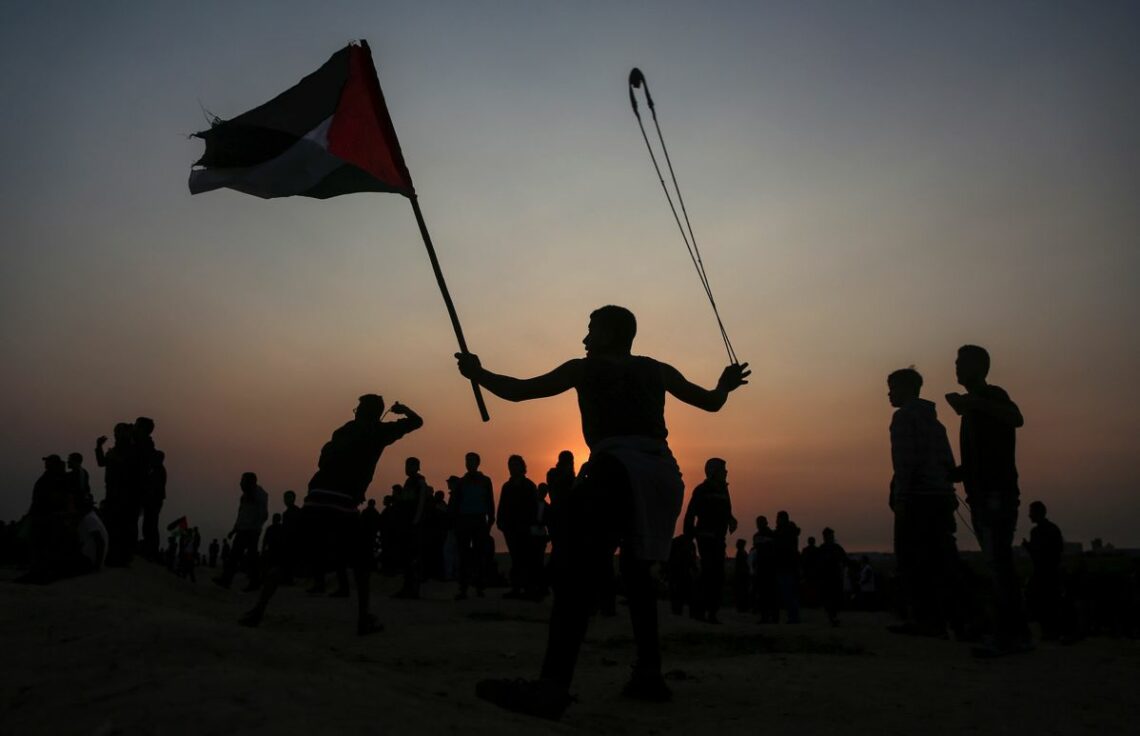
With more voices clamoring for the president to resign, something shifted in the army – until now Mr. Bouteflika’s key supporter. Its chief of staff, General Ahmed Gaid Salah, declared on March 10 that “the army and the people share the same vision.” There was talk of a national general strike.
At that point, on March 11, President Bouteflika suddenly announced he would not seek a new term. Elections were postponed, and plans were made to convene a national convention to draft a new constitution, which would be ratified via referendum. The government was completely reshuffled under a new prime minister, Noureddine Bedoui – an unpopular figure who had previously served as interior minister. These moves provoked further protests, as they were seen as a camouflaged attempt to let Mr. Bouteflika hang on for an unspecified period. Furthermore, postponing a presidential election was unconstitutional.
A more acceptable solution to this political quandary had to be found quickly. Once again, General Salah intervened, this time in a televised speech on March 26. The military chief invoked Article 102 of the constitution, which refers to conditions under which a president could be declared unfit to perform his duties for reasons of health.
This was an unmistakable call for President Bouteflika to resign, as well as a clear signal that the army intended to keep its grip on the regime. It took only a few hours for the UGTA and the DNR to follow suit and call for Mr. Bouteflika to step down.
On April 1, the president bowed to the inevitable, issuing a statement that he would resign before April 28 while taking steps “to ensure state institutions continue to function.”
As with Sudan, the West remained on the sidelines, urging all sides to desist from violence and calling for stability in fear of seeing other African countries follow suit. Even France, the former colonial power with continuing strong ties with Algeria, was careful not to go further, perhaps to avoid accusations of meddling.
Unknown variables
What now? In Sudan, President al-Bashir will need the allegiance of the tribal population, which has remained faithful so far, and above all the support of the army. That will not be enough, however. He could try the political and economic reforms being demanded by the West, and gain international approval. But that would not necessarily play well at home.
Another option would be to follow Mr. Bouteflika’s example and resign. That perhaps could help avoid a bloody conflict, but it is not likely to be Mr. al-Bashir’s choice. With no obvious candidate to succeed him, a power vacuum could arise in Khartoum, leading to political instability that could engulf neighboring countries. A compromise solution would be for President al-Bashir to announce he will not seek another mandate in 2020, giving him more than a year to select and groom a successor who could gain military backing and popular acceptance. However the situation plays out, the army will remain the strongest force in Sudan.
The Algerian military will be forced over the next few months to supervise the constitutional process.
Algeria is different because its military, while the ultimate arbiter of political power, does not actually rule the country. Even so, it will be forced during the next months of political transition to monitor and supervise the constitutional process, as well as to search for a suitable presidential candidate. The final choice could be a senior officer with political and security experience, or a well-known public figure acceptable to the high command.
One name that has surfaced is Lakhdar Brahimi, a former foreign minister and career diplomat who served as the United Nations and Arab League special envoy to Syria in 2012-2014. Born in 1934, Mr. Brahimi is elderly but well-respected and well-connected. His daughter is married to the second son of the late King Hussein of Jordan (1952-1999), by his second wife Queen Alia.
Given his years, Mr. Brahimi would not be expected to serve more than one term, but he would be an excellent choice to preside over a smooth change of regime. The main hurdle would be winning support from the army, which was forced to stop one Islamic takeover after the democratic elections of 1991 and does not want to repeat the experience.
In Algeria, the chances for a successful transition hinge on two key variables: 1) Will Islamic militants launch a renewed bid for power? 2) Will the Algerian people have enough patience to let the constitutional process work? For now, we do not have adequate data to provide convincing answers to these questions.
